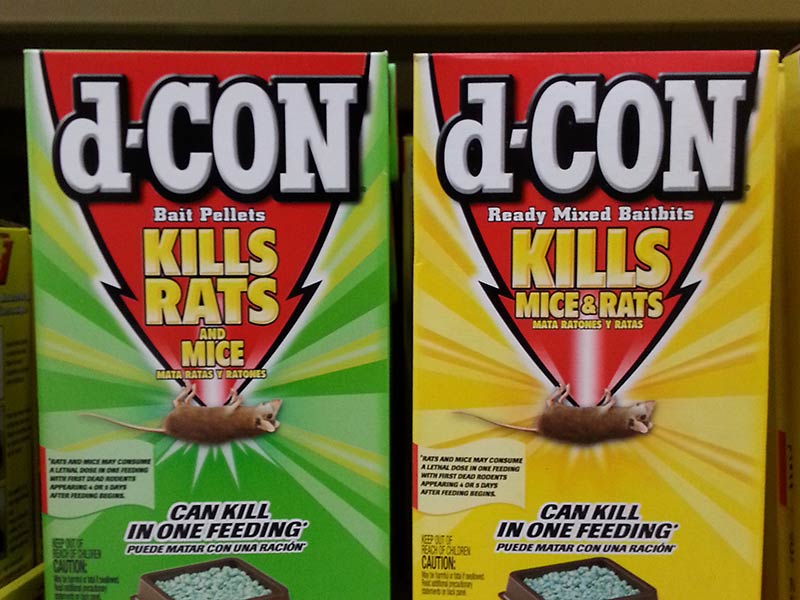A Bad Month for Poisons
Some of the gravest poisoning threats to children, pets and wildlife will disappear because of agreements reached by Earthjustice.

This page was published 11 years ago. Find the latest on Earthjustice’s work.
Some of the gravest poisoning threats to children, pets and wildlife will disappear because of agreements reached this month by Earthjustice and its allies.
The 12 most-dangerous d-CON rodenticides will soon be gone from retail shelves. After years of pressure from conservation, public-health and animal-rights groups, d-CON’s manufacturer agreed to stop producing its super-toxic rat poisons and pull the products from store shelves by early next year. This should greatly reduce unintentional poisonings of children, pets and wildlife.
No-spray buffer zones to protect salmon and steelhead from agricultural pesticides are making a comeback. A coalition of advocates for alternatives to pesticides, conservation organizations and fishing groups reached a significant agreement with the Environmental Protection Agency to keep the bad actors – derived from WWII nerve toxins – out of salmon habitat. The buffers prohibit aerial spraying of the pesticides within 300 feet of salmon habitat and prohibit ground-based applications within 60 feet.
Continuing in the good-news-for-humans, bad-news-for-toxic chemicals category:
After years of broken promises and court notices, Earthjustice, representing environmental, health and farmworker advocacy groups, challenged EPA’s refusal to immediately implement measures to safeguard children from dangerous pesticides that drift from fields during and after application. The lawsuit coincides with an open comment period on the revised Worker Protection Standard proposed by the EPA this spring. The men, women and children who harvest our nation’s food are about to get new protections against pesticides. Take action now to help ensure that these protections are strong enough to do the job.
Finally, Earthjustice, on behalf of conservation and food safety groups, filed a lawsuit against the EPA for failing to protect endangered species from a new toxic pesticide called cyantraniliprole. The EPA put both land and water creatures at risk by approving the widespread use of this new pesticide in January without input from the U.S. Fish and Wildlife and National Marine Fisheries services.